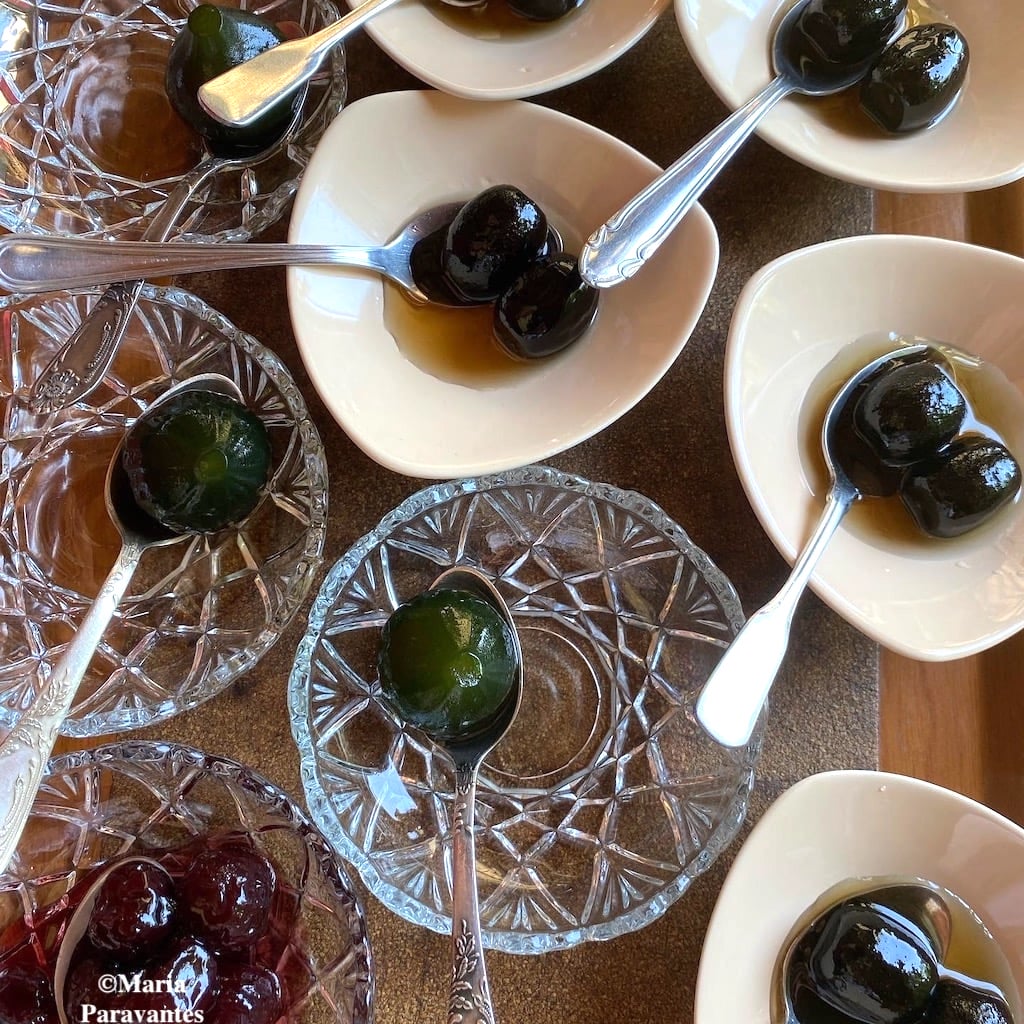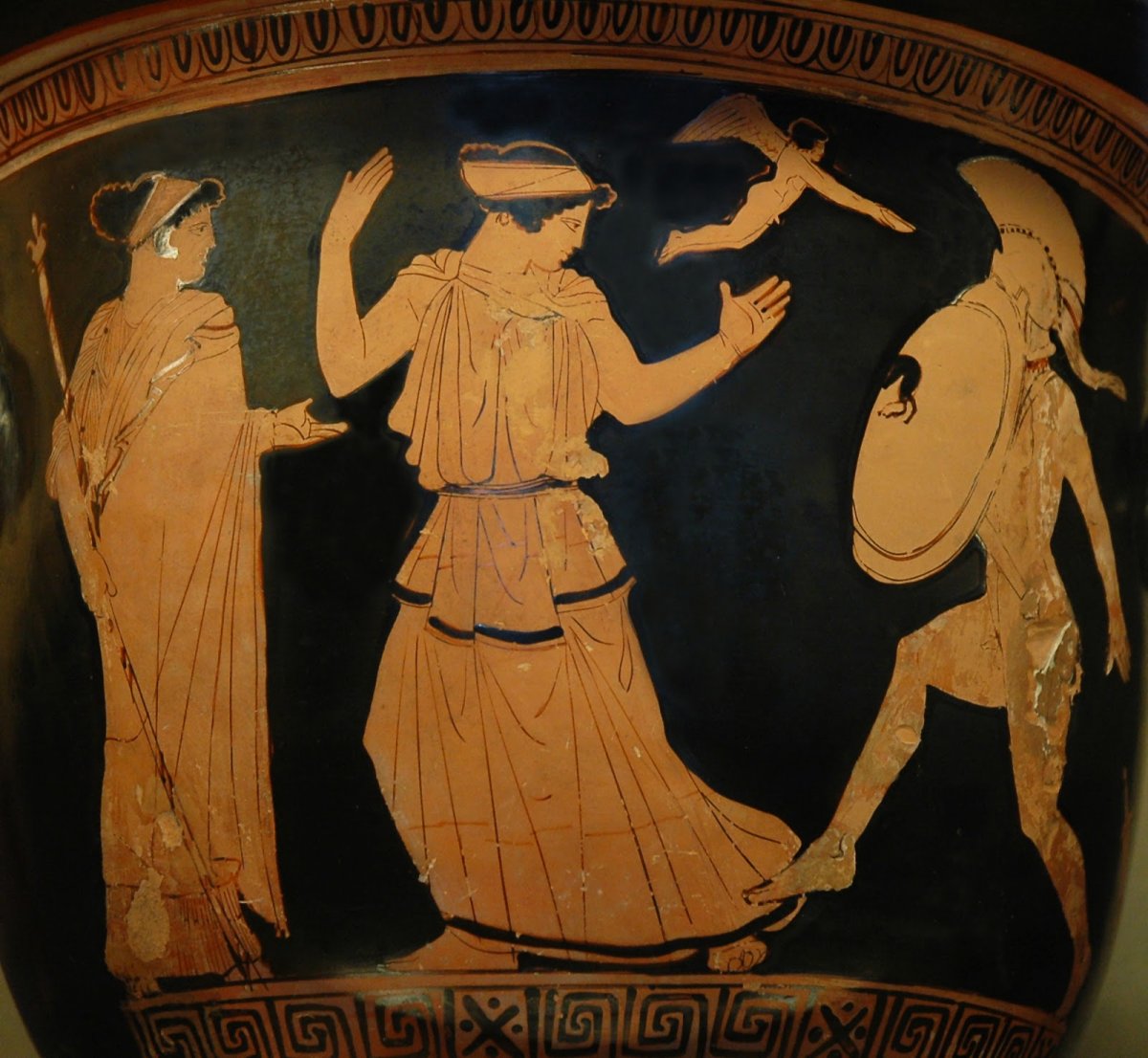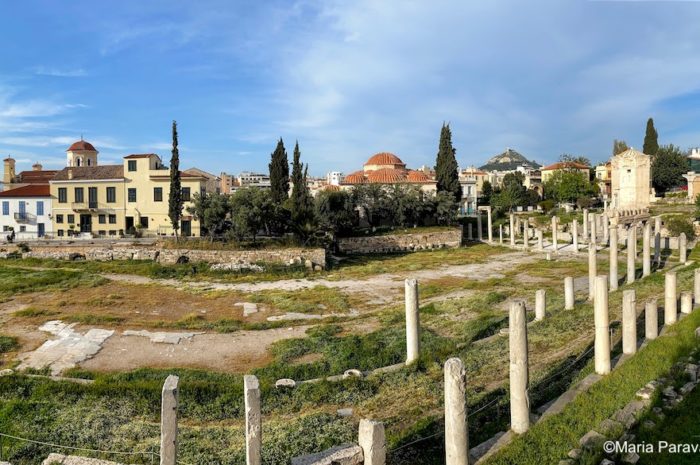
It is now more than ever that the concept of hospitality or “philoxenia” as devised by the ancient Greeks takes on an added meaning. In troubling times to say the least, with wars, pandemics, and madness, the true sense of Greek hospitality comes into the spotlight. Especially for us Greeks who have been raised by our mothers and grandmothers to offer “philoxenia to strangers at all times. But also for Greece, a country that welcomes millions of visitors to its shores every year.

Put forth by the gods, the Greek laws of “xenia” demanded that hospitality, kindness, and generosity were extended to a stranger no matter social class or background to create a special bond stronger than friendship.
“Xenia” embodies the idea of Greek hospitality and forms part of the compound word “philo-xenia” meaning “friend of the stranger”.
It is said that the King of the Gods himself, Zeus also called “Zeus Xenios” as the protector of all travelers, often wore layman’s clothes and dropped by randomly to make sure he was put up for the night.
If someone turned him away, the wrath of the gods was upon him and his family. And we all know how imaginative the Greek gods were with their punishments!
Besides Zeus Xenios, his daughter the goddess of wisdom, Athena Xenia, and the twins Dioscuri Castor and Pollux, also watched over strangers.
In ancient Greece, offering hospitality to a guest was seen as an act of virtue, an honor, and has as such passed into our DNA from one generation to the next for millennia as a sacred obligation – and a matter of pride.
I can’t even begin to describe the extent and notion of “philoxenia” as I’ve experienced it as a child in the Chicago, where my mother would host visiting Greeks for weeks! This included cooking, cleaning, and entertaining her guests, and which often was very exhausting. Here in Greece, I remember my aunt hosting friends and relatives for the entire summer, every summer, doing the same. I can also recall countless times when hiking across Crete some 40 years ago, a local out of the blue would “filepsei” (treat) me to a raki and meze, not to mention one summer on Kythira, where a villager put us up for the night because we had nowhere to stay!
👉🏼 Find the best hotel deals for you
The Basic Rules of ‘Philoxenia’

So, for fear of the gods, the ancient Greeks created an entire ritual around the idea of hospitality and most homes, even the poorest, had a “xenona” or guest room. The ritual is for the most part still practiced today.
Once a visitor knocked on your door, the ritual of xenia began. In antiquity the host – also known as the “xenistis” – addressed his guest as “xene” (stranger, foreigner) upon his arrival and welcomed him into his home – the act was known as “xenodohein”, which forms the basis for the word “xenodocheio” to mean “hotel”.
Greek Hospitality in Ancient Greece and Today
➣Then: The “xenos” was warmly welcomed, shown inside, and invited to stay.
Now: The same applies today.
➣Then: They could then bathe and slip into cleaner clothes.
Now: You “pamper” your guest with a “kerasma” – a drink or coffee and a sweet. This is where the Greek practice of “kerasma” came from actually!

➣Then: The host prepared a special meal to honor (“epi xenia kalein”) the visitor. The “xenos” is of course, offered the best seat in the house, the largest plate and the fullest glass of wine.
Now: Same applies today. You’ll often see an entire family standing up, waiting for their guest to choose the best seat, the finest piece of meat, the first to drink. It is also common to send food should our guest miss dinner at home. On most of my travels, I would always find a plate of fried fish, some vegetables straight from the garden, or a homemade sweet left in the kitchen. In some place I still do!
➣Then: If the visitor was in town for an event – usually athletic or celebrations – a welcome speech is made.
Now: Depending on who your guest is the same applies today.
Now: In most of Greece, and particularly in the villages, people either stare at you or plainly ask “whose ‘child’ you are” as well as other questions out of curiosity. Once you get past this stage you’ve won them over. The town is yours!
► Spoon Sweets – A Greek Expression of Hospitality
➣Then: The host asks if there is something he can do to make his guest’s stay in town better.
➣Then: A laid-back Q&A session followed so that the host and stranger got to know each other better.
Now: The same applies today… from the receptionist at the luxury hotel and the barman to the owner of the guest house or your Airbnb host, they are more then willing to help… as long as you ask.
➣Then: The host offers to put the stranger up for as long as he wishes to stay.
Now: We have hotels and accommodation options of all sorts!
➣Then: Before the “xenos” – who is by now a friend – prepares to leave, the host offers him gifts establishing the bond between them and sealing a new friendship.
Now: The same applies. Particularly on small islands or remote mountain villages, travelers rarely leave without being given at least a homemade spoon sweet, a bottle of wine, home-grown vegetables or some homemade raki.
👉🏼 Dream of visiting Greece? Start planning
Greek Hospitality Trivia

Did you know that the Trojan War was most likely caused by a violation of the hospitality rule?
How? Well despite being a guest and offered the finest hospitality, Paris, a prince of Troy, thought it was a good idea to abduct the beautiful wife of Menelaos, who was the Greek king of Sparta. Trusting that Paris would respect the laws of xenia, Menelaos left only to return and find that his beautiful wife Eleni – known as “Oraia Eleni” or “fair Helen” – had been taken to Troy…. and so the Trojan War began.
In Homer’s Iliad as conveyed by the great US classicist Edith Hamilton:
“Paris whom coming, Entered a friend’s kind dwelling, Shamed the hand there that gave him food, Stealing away a woman.”
►Greeks and their Coffee: How to Enjoy Coffee Like a Greek
Philoxenia the Modern-day Meaning
Then and now, the idea behind philoxenia was to protect both host and guest and to bring people closer together through good intention on both sides irrelevant of social class, race, and religion to create alliances in an often scary world.
Hamilton sums Greek hospitality up clearly:
“The ties between guest and host were strong. Each was bound to help and never harm the other.”
Edith Hamilton
So, true Greek hospitality is a matter of generosity and reciprocity, a give and take mentality that helps maintain balance and provide the foundations for a domino effect of sharing, exchange, support and kindness – all very relevant in this day and age.
Where can you Still Experience “Philoxenia” in Greece
-At an island or village coffee house (Kafeneio).
-At a Greek Orthodox monastery.
-During an open-air celebration (panegyri).
-During Greek Orthodox Easter.
-At a Greek wedding.
♪And on that note, I end today’s post with humorous take on Cretan hospitality – a Greek promotional campaign which won first prize at the Greek Tourism Awards in 2014.
Enjoy!
❤️ Follow The Greek Vibe on TikTok too!
Enjoyed this Post? Share and Pin it!




It’s amazing to learn more about Greek hospitality 🙂 I have never been to Greece but I would love to visit it. There are so many beautiful places and tasty food!
Well, then Cristina, hoping to see you soon!